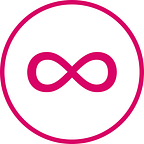eatsa Technology Series
Engineering for Yourself
Contributed by Talia Trilling, Software Engineer @ eatsa
For many software engineers, the products we build and work on are completely foreign to us. At some companies, we may not be consumers of the product, and in worse case we may not fully understand the functionality we are implementing. I am guilty of this one myself, having worked for a little over a year on accounting software as someone who barely knows how to balance a checkbook. It’s not just that I wasn’t a user of the product, I couldn’t even relate to the end consumer, and that massively narrowed my ability to get excited about what I was building and invested in the reliability of it. Furthermore, I couldn’t make basic inferences about how to best develop the user experience or automate it, because the use cases were so foreign to me. That’s not to say that I didn’t try to learn about accounting, but it never was meaningful to me in the way I needed it to be. I was not a part of the intended product’s audience (accounting professionals), and I never would be, no matter how much effort I put into learning about it. I think I was so excited to be employed as an engineer that I didn’t realize the impact my feelings (or lack thereof) towards the product limited my ability to interact with it.
Engineering can be confusing in its own right, but combined with complex accounting rules and use cases, it took on another level of unfamiliarity for me. Testing required following pages of detailed excel spreadsheets, instructing me on how the product should behave for capital expenditures or long term leases, or accounting adjustments, or any number of other configurations. There was never a world in which I organically would have been able to test functionality, and while that’s ok, it made concepts like test driven development feel more to me like a nice idea than a feasible reality.
When I first interviewed with eatsa, I knew that on the most basic level, I could relate to the goal of improving the restaurant experience. Despite scores of technological innovation, the way customers engage in the dining experience has mostly stayed the same over the past couple of decades, and eatsa aims to change that. I was excited to work for a company that was building something so innovative, but I thought that was mostly a bonus, not something that would directly impact me on a daily basis. What I began to realize as I became more familiar with the company, was how much more I could grow as an engineer when I related to the product being built. I began to see products as massive living ecosystems rather than a series of engineered tools that in an ideal world would interact. Being in a small startup environment further enhanced this feeling, as the constant speed of and iteration on development wouldn’t and couldn’t happen in a silo, but in constant conversation with people responsible for other parts of the system.
The products that eatsa is building affect me on a deeply personal level. As someone with severe food allergies and at times limited mobility, eating out is not always a pleasant or even safe experience. In my time at eatsa, I’ve glimpsed into the types of improvements future restaurants could potentially make to improve these experiences, and that knowledge makes my work feel meaningful and impactful, something I believe engineers often struggle with.
I come to the office excited about what I am building, knowing that my engineering work has the potential to fix problems I and many others face. By streamlining how someone might use a delivery service when they are unable to leave their home, or enhancing the ease with which a user can check the allergens in a dish, I know I’m having a tangible impact on things I care about. I also relish applying programming concepts to this context, because I’m not only moving from the theoretical to the practical but I’m also more cognizant of how the practical application impacts the end goal.
Although not all engineers will be able to have the experience of building a product they are so invested in, I hope that my peers begin to recognize that this aspect of employment can be just as valuable as desirable tech stacks or a strong company culture. When my motivation to build systems is combined with my passion for the product, the experience takes on an entirely new meaning to me.
